Medications That Could Be Contributing to Your Weight Gain
Many common prescription drugs—while essential for treating conditions like depression, diabetes, high blood pressure, and chronic pain—can alter metabolism, increase appetite, cause fluid retention, or affect the body's ability to regulate weight. This hidden side effect can leave patients frustrated, feeling like their weight is out of their control. To help you stay informed, we’ve expanded our list of medications that could be contributing to unexpected weight gain. By understanding how these drugs impact your body, you can work with your healthcare provider to explore alternatives, adjust dosages, or implement strategies to minimize their effects—ensuring you stay on track with both your treatment and weight management goals.
1. Antidepressants: More Than Just Mood Alterers

Antidepressants are widely prescribed to help individuals manage conditions like depression and anxiety, improving overall mental health and emotional well-being. However, one common yet often underestimated side effect is weight gain. Some antidepressants, particularly selective serotonin reuptake inhibitors (SSRIs) and tricyclic antidepressants (TCAs), impact serotonin levels in the brain, which can lead to increased appetite and stronger cravings for carbohydrates. Additionally, monoamine oxidase inhibitors (MAOIs) and certain atypical antidepressants can slow metabolism or affect the body's ability to regulate hunger cues effectively. While the benefits of these medications often outweigh the risks, it is important for patients and healthcare providers to be aware of potential changes in weight. Adjusting dietary habits, incorporating regular physical activity, or discussing alternative medications with fewer metabolic side effects may help mitigate unwanted weight gain while maintaining the mental health benefits these medications provide.
2. Antipsychotics: Balancing Mental Health with Physical Changes

Antipsychotic medications play a crucial role in managing serious mental health conditions such as schizophrenia and bipolar disorder. However, they are also linked to significant weight gain, with drugs like olanzapine, quetiapine, and clozapine being particularly associated with metabolic changes. These medications can alter insulin sensitivity, slow down metabolism, and increase appetite, making it more challenging to maintain a healthy weight. Additionally, they may impact the brain’s reward system, causing an increased craving for high-calorie foods. While these effects can be frustrating, managing weight gain while taking antipsychotic medications is possible. Patients can work with their healthcare providers to monitor metabolic changes, explore alternative medications with lower weight gain risks, and adopt lifestyle modifications such as nutrient-dense diets, portion control, and consistent physical activity. Striking a balance between mental stability and physical health requires a proactive approach, but it is entirely achievable with the right support system.
3. Steroids: The Double-Edged Sword of Inflammation Control

Steroids, particularly corticosteroids like prednisone and dexamethasone, are powerful anti-inflammatory drugs used to manage conditions ranging from asthma and autoimmune disorders to severe allergic reactions. While they are highly effective in reducing inflammation and suppressing immune system overactivity, they are also notorious for causing weight gain. This occurs due to increased appetite, fluid retention, and changes in fat distribution, often leading to a "moon face" appearance and abdominal weight gain. Long-term steroid use can also disrupt hormone levels, making weight loss more challenging. Managing weight while taking steroids involves balancing calorie intake, focusing on whole foods, staying active, and being mindful of sodium intake to reduce water retention. If long-term steroid use is necessary, discussing alternative dosing strategies or tapering schedules with a doctor may help minimize these side effects.
4. Diabetes Medications: A Paradoxical Effect
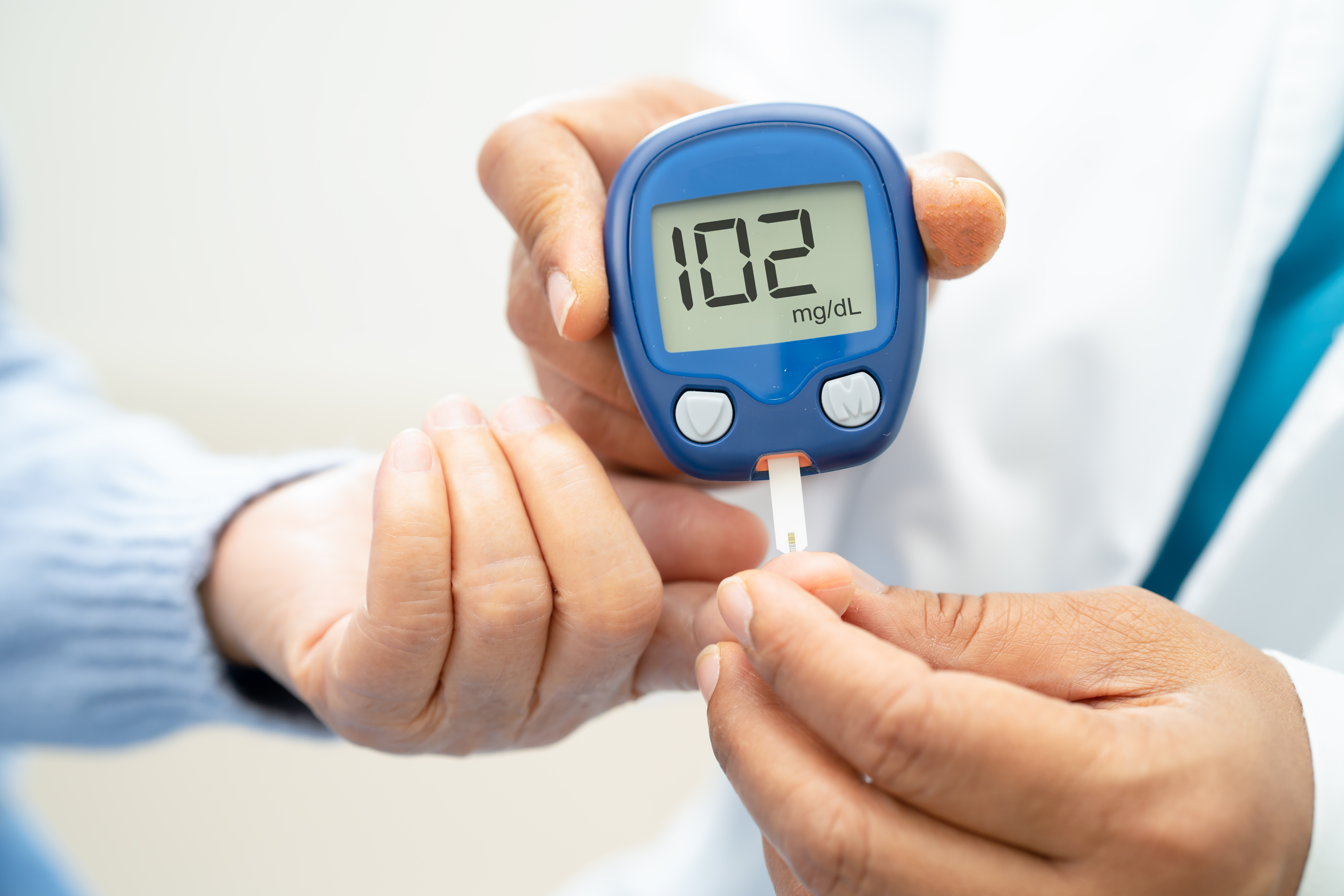
Diabetes medications are designed to regulate blood sugar levels, but some may paradoxically lead to weight gain. Insulin therapy, a crucial treatment for type 1 and advanced type 2 diabetes, can promote fat storage and increased appetite, leading to gradual weight gain over time. Additionally, oral medications such as sulfonylureas and thiazolidinediones stimulate insulin production, which can also contribute to increased fat accumulation. While controlling blood sugar is the priority, there are ways to minimize medication-induced weight gain. Patients can work with their healthcare provider to adjust insulin dosages, adopt a balanced diet with slow-digesting carbohydrates, engage in regular physical activity, and explore alternative diabetes medications like GLP-1 receptor agonists, which may aid in weight loss. Proper diabetes management is about finding the right balance between blood sugar control and maintaining a healthy weight.
5. Beta Blockers: Heart Health at a Cost

Beta blockers such as metoprolol, propranolol, and atenolol are commonly prescribed for heart conditions, including high blood pressure and arrhythmias. While effective in lowering heart rate and blood pressure, they can also slow down metabolism, leading to gradual weight gain. Additionally, beta blockers may cause fatigue, reducing motivation for exercise and physical activity. Patients taking these medications should focus on staying active in ways that feel manageable, such as walking, swimming, or low-impact strength training. A diet rich in fiber, lean proteins, and whole grains can also help counterbalance metabolic slowdowns. If significant weight gain becomes an issue, discussing alternative medications with fewer metabolic effects, such as ACE inhibitors or calcium channel blockers, may be worth considering with a doctor.
6. Antihistamines: More Than Allergy Relief
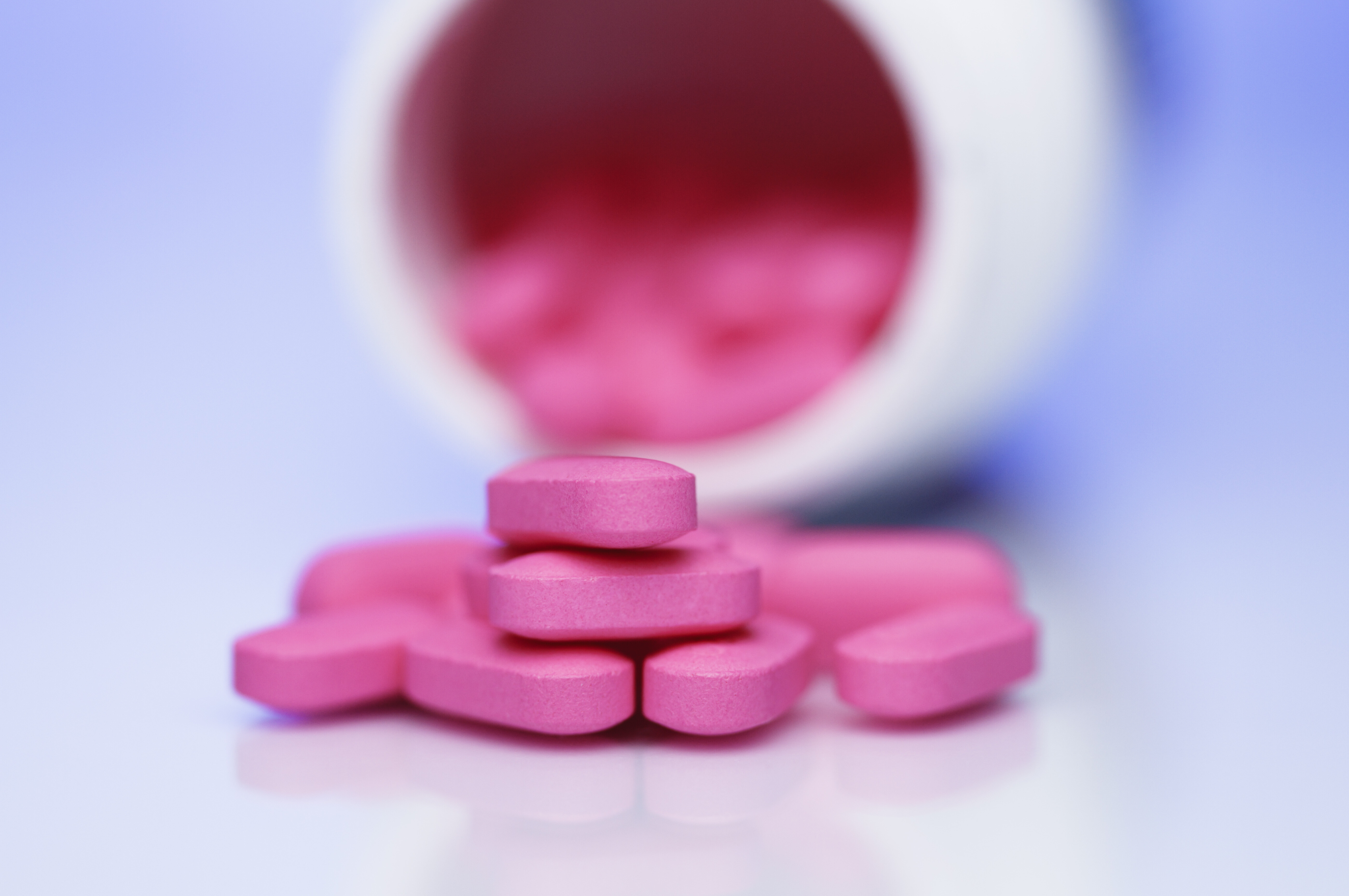
Antihistamines are commonly used to treat seasonal allergies, but some of these medications, especially first-generation antihistamines like diphenhydramine (Benadryl) and hydroxyzine, have been linked to weight gain. This is because histamine plays a role in appetite regulation, and blocking histamine receptors can lead to increased hunger and decreased energy levels. Some newer antihistamines, such as loratadine (Claritin) or fexofenadine (Allegra), are less likely to cause these effects. Individuals who need regular antihistamines should consider choosing non-drowsy formulas, staying active, and practicing mindful eating habits to counteract potential weight-related side effects.
7. Seizure Medications: Navigating Neurological and Physical Health

Medications used to manage epilepsy and other seizure disorders, such as valproate, carbamazepine, and gabapentin, are crucial for controlling seizures but often come with the unintended side effect of weight gain. These drugs can slow metabolism, increase appetite, and alter the way the body stores fat, making weight management more challenging. Additionally, some seizure medications may cause fatigue or drowsiness, leading to decreased physical activity levels, which further contributes to weight fluctuations. While seizure control remains the top priority, it is possible to manage weight gain with mindful adjustments. Patients can work with their healthcare providers to explore alternative medications with fewer metabolic effects, incorporate a nutrient-rich diet, and engage in gentle, consistent physical activity that aligns with their energy levels. Finding the right balance between maintaining neurological health and supporting overall well-being requires a proactive approach, ensuring that individuals can continue their treatment without compromising their physical health.
8. Hormonal Contraceptives: Beyond Birth Control

Hormonal contraceptives, including birth control pills, patches, injections, and intrauterine devices (IUDs), are widely used for pregnancy prevention and hormone regulation. While research on the direct link between contraceptives and weight gain is mixed, many individuals report increased appetite, fluid retention, and body composition changes after starting hormonal birth control. Injectable contraceptives like Depo-Provera have been particularly associated with weight gain due to prolonged exposure to progestin, which may slow metabolism and increase hunger signals. Each person responds differently to hormonal shifts, so understanding how these medications interact with the body is key. If weight gain becomes a concern, individuals can consult their healthcare provider about switching to a different formulation or exploring non-hormonal options such as copper IUDs or barrier methods. Maintaining a balanced diet, staying physically active, and monitoring portion sizes can also help counteract potential changes in appetite and metabolism.
9. Migraine Medications: Relief with a Side of Weight Gain

Migraine prevention medications, including certain antidepressants, beta blockers, and antiepileptic drugs, are effective at reducing the frequency and severity of migraines. However, some of these treatments—such as amitriptyline, valproate, and propranolol—are known to contribute to weight gain through increased appetite, slowed metabolism, and fluid retention. Since migraines can already disrupt daily routines, unexpected weight changes can add another layer of frustration. Individuals taking migraine medications can work closely with their healthcare provider to assess whether switching to a weight-neutral alternative, such as topiramate or newer CGRP inhibitors, is a viable option. Additionally, incorporating low-inflammatory, nutrient-dense foods, staying well-hydrated, and maintaining a consistent sleep and exercise routine may help counteract the metabolic effects of these medications. Managing migraines while maintaining a healthy weight requires a personalized approach that balances symptom control with overall well-being.
10. Blood Pressure Medications: Balancing Cardiovascular and Weight Health

Certain blood pressure medications, such as beta blockers, calcium channel blockers, and alpha-blockers, can inadvertently contribute to weight gain. These medications work by lowering heart rate and relaxing blood vessels, but in doing so, they may reduce metabolic rate and cause fluid retention. Some individuals also experience fatigue or reduced exercise tolerance, making it more challenging to maintain an active lifestyle. While controlling high blood pressure is essential for long-term health, there are strategies to mitigate weight-related side effects. Patients can discuss alternative medications, such as ACE inhibitors or ARBs, which are less likely to impact weight. Additionally, focusing on heart-healthy habits—such as eating fiber-rich foods, reducing sodium intake, and engaging in low-impact activities like swimming or walking—can help maintain both cardiovascular and metabolic health. Finding the right combination of medication, diet, and movement is key to managing both blood pressure and weight effectively.
11. Antiretroviral Drugs: Managing HIV with Weight Considerations
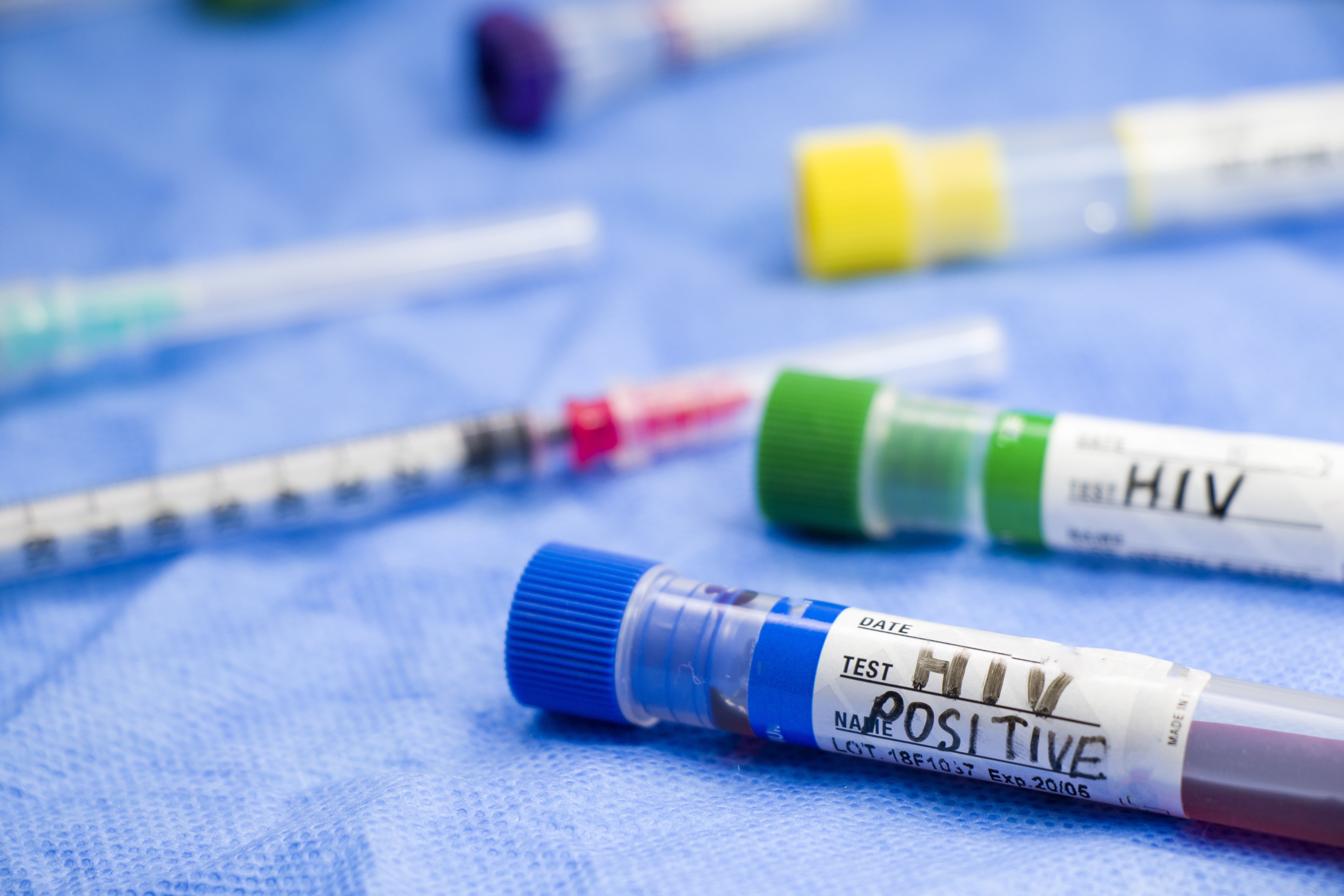
Antiretroviral drugs have revolutionized the management of HIV, allowing individuals to lead long and healthy lives. However, some of these medications, particularly newer integrase inhibitors like dolutegravir and bictegravir, have been linked to weight gain and changes in fat distribution, particularly in the abdominal area. The mechanisms behind this are not yet fully understood, but insulin resistance, metabolic changes, and shifts in appetite regulation may play a role. While maintaining an effective HIV treatment plan is non-negotiable, individuals can take steps to monitor and manage weight gain through mindful nutrition, resistance training, and regular metabolic check-ups. If weight changes become significant, patients can consult their healthcare provider about possible adjustments to their treatment regimen. Finding a balance between HIV management and overall health requiresongoing communication with medical professionals and a proactive approach to wellness.
12. Proton Pump Inhibitors (PPIs): Stomach Acid Relief with a Side Effect

PPIs, such as omeprazole (Prilosec), esomeprazole (Nexium), and lansoprazole (Prevacid), are commonly prescribed to treat acid reflux and GERD by reducing stomach acid production. While they are highly effective, some studies suggest that long-term use may contribute to weight gain by altering gut bacteria and digestion. Since stomach acid plays a role in breaking down food and absorbing nutrients, prolonged suppression can slow metabolism and lead to bloating or weight retention. Additionally, some people may experience increased appetite as their body adjusts to lower acid levels. What to Do: If you rely on PPIs long-term, talk to your doctor about weaning off or using alternative treatments like dietary changes, probiotics, or H2 blockers. Maintaining a balanced diet rich in fiber and lean proteins can also help offset weight fluctuations.
13. Statins: The Cholesterol-Lowering Culprit
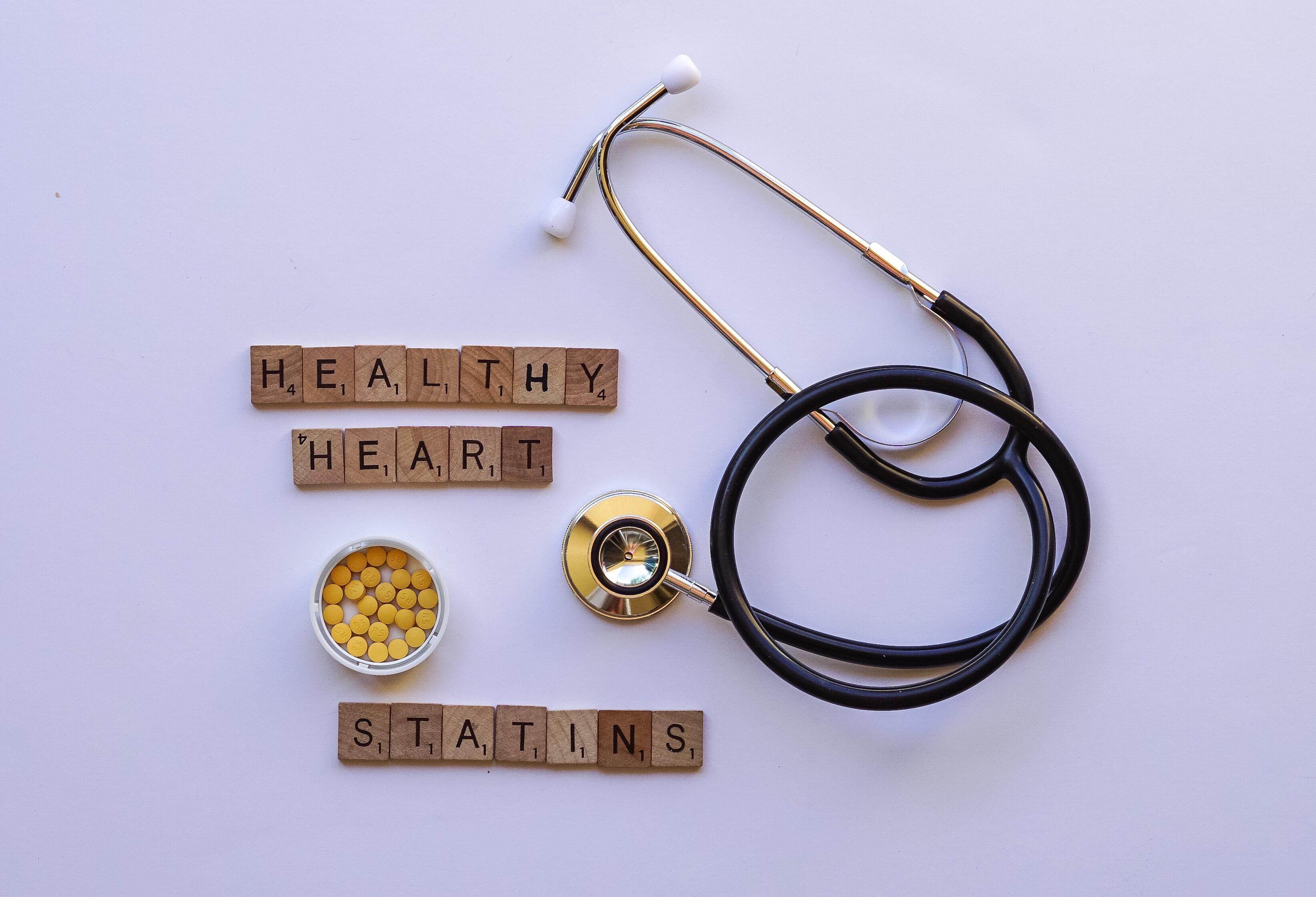
Statins, including atorvastatin (Lipitor) and simvastatin (Zocor), are widely used to lower cholesterol levels and reduce the risk of heart disease. However, some people notice unexpected weight gain while on these medications, likely due to changes in metabolism and muscle fatigue, which can make exercise more challenging. Additionally, statins may slightly increase insulin resistance, which can lead to increased fat storage. While these effects are often mild, they can be frustrating for those actively working to maintain a healthy weight. What to Do: Focus on heart-healthy fats (like avocados, nuts, and olive oil), stay active with low-impact exercises to counteract fatigue, and consult your doctor about adjusting your dosage or exploring alternative cholesterol-lowering options if necessary.
14. NSAIDs: Pain Relief with Hidden Consequences

Nonsteroidal anti-inflammatory drugs (NSAIDs), like ibuprofen (Advil), naproxen (Aleve), and diclofenac, are used for pain relief, inflammation, and arthritis. While not commonly linked to weight gain, long-term use may cause fluid retention and bloating. Additionally, NSAIDs can lead to gut inflammation, slow digestion, and cause water weight retention, especially when taken in high doses. People with chronic pain or arthritis may also move less, leading to gradual weight gain over time. What to Do: Drink plenty of water, limit sodium intake, and incorporate gentle movement (like stretching or walking) to prevent water retention. If pain management is affecting your activity levels, talk to your doctor about alternative pain relief options or physical therapy.
15. Anticonvulsants: More Than Just Seizure Control

Certain anticonvulsant medications, such as pregabalin (Lyrica) and gabapentin (Neurontin), are prescribed for epilepsy, nerve pain, and fibromyalgia. However, these medications are known to cause weight gain by increasing appetite, fluid retention, and altering metabolism. Additionally, they can cause fatigue and drowsiness, making exercise and daily activity more difficult. This can create a cycle where reduced movement leads to gradual weight gain. What to Do: If you notice weight gain, talk to your doctor about dose adjustments or alternative medications. Focusing on protein-rich meals and gentle physical activity can also help mitigate these effects.
16. ADHD Medications: Rebound Weight Gain

Stimulant medications like Adderall, Ritalin, and Vyvanse are well-known for suppressing appetite in people with ADHD. While this can initially lead to weight loss, many people experience rebound weight gain when they stop taking these medications or when their bodies adjust to the dosage. Some individuals also find that ADHD medications impact hunger cues, leading to periods of under-eating followed by intense cravings once the medication wears off. What to Do: Work with your doctor to monitor dosage carefully and focus on balanced, nutrient-dense meals to prevent extreme hunger fluctuations. If coming off ADHD medication, adjust food intake gradually rather than abruptly.
17. Thyroid Medications: A Complex Balance

People with hypothyroidism often take levothyroxine (Synthroid) or liothyronine (Cytomel) to regulate their thyroid hormone levels. While these medications are meant to support metabolism, some people experience weight gain due to incorrect dosing. An underactive thyroid can slow metabolism and cause fatigue, fluid retention, and difficulty losing weight—even while on medication. Sometimes, weight gain may persist due to improper hormone balance. What to Do: Work with your doctor to regularly monitor thyroid levels to ensure your medication is working effectively. Incorporate strength training and whole foods to support a stable metabolism.
18. Muscle Relaxants: Relaxation with a Trade-Off

Muscle relaxants such as cyclobenzaprine (Flexeril) and methocarbamol (Robaxin) are commonly prescribed for muscle spasms and chronic pain. However, these medications can cause drowsiness, slowed metabolism, and reduced activity levels, all of which may contribute to weight gain. Additionally, muscle relaxants may increase appetite and cause bloating, particularly when used long-term. What to Do: Try low-impact movement like stretching or swimming to counteract inactivity. If weight gain becomes a concern, discuss alternative pain management strategies with your doctor.
19. Opioids: Pain Relief with Metabolic Effects

Opioid medications like oxycodone, hydrocodone, and morphine are prescribed for severe pain but can cause unexpected weight gain due to slowed metabolism, water retention, and fatigue. Additionally, opioids may alter gut bacteria and hormone regulation, leading to increased cravings for carbohydrates and high-calorie foods. What to Do: If using opioids long-term, work with your doctor on gradual dose adjustments or alternative pain relief strategies. Staying hydrated and incorporating fiber-rich foods can help prevent bloating and digestive issues.
20. Estrogen Therapy: Hormonal Weight Shifts

Hormone replacement therapy (HRT) for menopause or hormonal imbalances can sometimes lead to fluid retention and fat redistribution, particularly around the abdomen and thighs. While estrogen therapy itself doesn’t directly cause weight gain, it may slow metabolism and increase appetite due to shifts in hormone levels. What to Do: Focus on strength training, protein-rich meals, and hydration to maintain a stable metabolism. If weight gain becomes a concern, talk to your doctor about adjusting HRT dosage or exploring lifestyle modifications.
21. Sleep Aids: Restful Nights with Hidden Effects

Medications like zolpidem (Ambien), trazodone, and diphenhydramine (Benadryl, Unisom) are often used to treat insomnia or sleep disturbances. However, some sleep aids disrupt metabolism and increase hunger cues, particularly late at night. Additionally, certain sleep medications alter brain chemistry, leading to reduced motivation for physical activity during the day. What to Do: If weight gain is a concern, consider non-medication sleep strategies like meditation, blue light reduction, and a consistent bedtime routine. If sleep medication is necessary, work with your doctor to find the lowest effective dose.
22. Alpha-Blockers: Blood Pressure Relief with a Metabolic Catch
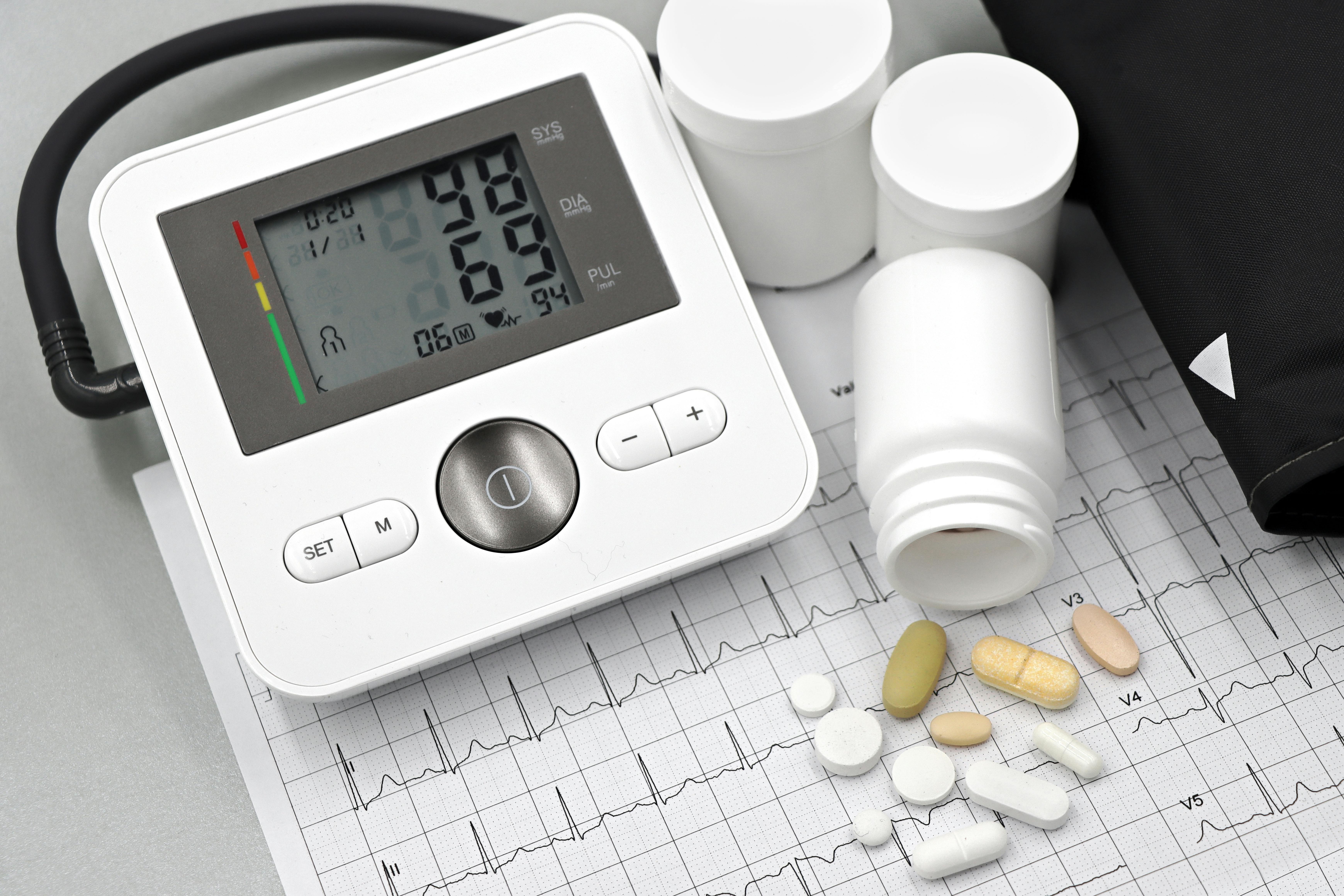
Alpha-blockers like prazosin and doxazosin are primarily prescribed for high blood pressure and benign prostatic hyperplasia (BPH). While they effectively relax blood vessels to improve blood flow, they can also cause an unintended side effect of weight gain. These medications may slow down the body's metabolic rate, making it easier to gain weight and harder to lose it. Additionally, some alpha-blockers can cause fatigue and dizziness, which can reduce a person's motivation and capacity for physical activity. If you're on these medications, try to incorporate low-intensity activities like walking or swimming into your routine, and focus on a diet rich in fiber and lean protein to support a healthy metabolism.
23. Antihypertensive Vasodilators: Managing Hypertension with Potential for Weight Gain

Antihypertensive vasodilators, such as hydralazine and minoxidil, are used to treat high blood pressure by relaxing and widening blood vessels. This can, however, lead to fluid retention, a common cause of unexpected weight gain. When the body holds onto excess water and sodium, it can cause bloating and an increase in overall body weight. This type of weight gain isn't from fat, but it's still frustrating and can be an early sign of a need for a medication adjustment. To combat this, you can limit your sodium intake, stay hydrated with plain water, and talk to your doctor about diuretics or a change in your medication.
24. Immunosuppressants: A Crucial Role with Metabolic Implications

Immunosuppressant drugs like cyclosporine and tacrolimus are vital for preventing organ rejection after a transplant and managing autoimmune diseases such as rheumatoid arthritis. While they are crucial for health, they can lead to weight gain by increasing appetite and causing fluid retention. Some of these medications can also disrupt insulin function and alter lipid metabolism, contributing to fat accumulation. It’s important to work closely with your healthcare team to monitor your weight and metabolic health. Adopting a balanced diet that is low in processed foods and engaging in gentle physical activity, with your doctor's approval, can help manage these effects without compromising your treatment.
25. Selective Serotonin and Norepinephrine Reuptake Inhibitors (SNRIs): The Double-Edged Sword of Mental Health

SNRIs, including venlafaxine and duloxetine, are a class of antidepressants that work by increasing serotonin and norepinephrine levels in the brain. While they can be highly effective for treating depression and anxiety, they can also lead to weight gain. This happens for a few reasons: an increase in appetite, a slowing of metabolism, and in some cases, a normalization of mood that leads to more regular eating patterns. It's a tricky balance. For some, weight gain is a sign that the medication is working and they're no longer suppressing their hunger. If you're concerned, talk to your doctor about exploring other medications or incorporating mindful eating and regular exercise into your daily routine.
26. Antifungals: Treating Infections with an Unforeseen Consequence

Antifungal medications, particularly oral drugs used for long-term treatment of conditions like nail fungus or systemic infections, can sometimes lead to weight gain. While not a primary side effect, some antifungals can affect liver function and alter the gut microbiome, which plays a critical role in metabolism and weight regulation. These medications may also cause fatigue, leading to a decrease in physical activity. If you are on a long-term course of an antifungal and notice unexplained weight gain, discuss it with your doctor. They may recommend monitoring liver enzymes or suggest dietary changes to support a healthy gut and metabolic rate while you complete your treatment.
27. Pain Management with Tricyclic Antidepressants (TCAs)

While TCAs like amitriptyline are often mentioned for depression, they are also a frontline treatment for chronic pain conditions like nerve pain, migraines, and fibromyalgia. However, this dual purpose comes with a side effect that can feel especially frustrating: significant weight gain. TCAs can cause increased appetite and cravings for carbs by affecting serotonin and norepinephrine in the brain. They also have anticholinergic effects that can slow down metabolism and digestion. For people already struggling with the fatigue and limited mobility that often accompany chronic pain, the medication's metabolic effects can create a difficult cycle. If you're using a TCA for pain and notice your weight creeping up, discuss a lower dose, a different medication class (like an SNRI), or incorporating a mindful, anti-inflammatory diet with your doctor to manage pain and weight simultaneously.
28. Non-Opioid Pain Relievers: A Hidden Culprit

For those managing chronic pain, non-opioid pain relievers are a safer, more sustainable option. However, even these can affect weight in subtle ways. Consider Cymbalta (duloxetine), an SNRI that's also prescribed for nerve pain and fibromyalgia. While some SNRIs can cause weight loss, others, like duloxetine, can lead to weight gain by increasing appetite and normalizing mood, which for some means a return to more regular eating patterns. Additionally, some non-opioid medications may cause fluid retention or fatigue, which indirectly contribute to weight changes. If your pain relief comes with extra pounds, focus on nutrient-dense foods, stay active in ways that don't aggravate your pain, and talk to your doctor about alternative pain management therapies like physical therapy or acupuncture.
29. Mood Stabilizers Beyond the Obvious

There’s a class of mood stabilizers often overlooked in this conversation: lithium. A cornerstone for treating bipolar disorder for decades, lithium can cause weight gain in up to two-thirds of patients. The mechanism is twofold: it can make you feel more thirsty, which can be misconstrued as hunger, and it can also interfere with thyroid function, slowing down your metabolism. The weight gain can be frustrating, especially when the medication is so effective at stabilizing mood. The key here is proactive management. Regular blood tests to monitor thyroid function are essential, as is staying well-hydrated with water. Discuss a lower dose, a switch to a weight-neutral alternative, or working with a registered dietitian to manage your eating habits.
30. Infertility Medications: A Rollercoaster of Hormones

Many people are unaware that medications used to treat infertility, like Clomid (clomiphene citrate) and injectable gonadotropins, can cause significant weight fluctuations. These medications work by stimulating ovulation and are a whirlwind of hormonal changes. The hormonal shifts can lead to water retention, bloating, and increased appetite, making it seem like you've gained a significant amount of weight in a short period. This is often temporary and not fat gain, but it can be frustrating during an already emotional journey. The best approach is to be aware of the temporary nature of this weight and focus on staying healthy through nutritious food choices and gentle movement, rather than stressing over the scale.
31. Immunosuppressants for Autoimmune Conditions

These drugs are crucial for taming the overactive immune system, but they can come with metabolic trade-offs. They can cause fluid retention, changes in appetite, and can also lead to fatigue, making exercise more difficult. What's more, these conditions themselves can affect metabolism. To navigate this, it's vital to work closely with your healthcare team to balance the medication's benefits with its side effects. A diet rich in anti-inflammatory foods can support your body, and gentle exercise can help with energy levels and metabolism without causing flares.
Navigating the Complex Landscape of Medication and Weight

The key is awareness and advocacy—understanding how your body responds and working with your doctor to find the best approach for both your medical needs and your well-being. By tracking changes, exploring alternatives, and making small, sustainable lifestyle adjustments, you can take control of your health while staying on your treatment plan. Your health journey is personal, and every step toward balance—no matter how small—is a victory. Stay informed, be kind to yourself, and keep moving forward.
Powered by Froala Editor